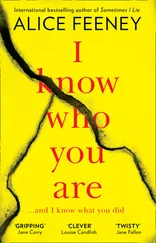“Now do you see why I hate flying?” she said.
“Plane crashes don’t happen very often,” I said, resorting to my father’s old tactic, which had been to respond to her irrational fears with statistics. It never worked. I closed the toilet lid and sat down. I inventoried the expired bottles of sunscreen and painkillers on the bathroom counter. There was a graveyard of old lipstick tubes next to the sink. I was surrounded by rot and decay. My tears came fast and furious. Suddenly I was crying so hard I could hardly breathe.
“Come here,” my mother said.
I knelt on the floor beside the tub. She cuffed my wrists and pulled me in like a convict. “I love you so much it hurts,” she said.
“I know,” I said.
She pressed her forehead to mine, and we were locked together like two magnets, the grief pulsing between us. I finally stopped crying. “It’s our job to make the world a safer place,” she said, and then released my wrists as if they were balloons that might lift into the sky.
* * *
THERE WERE MANY NIGHTS before her death when I’d wished for Jenny’s comeuppance. We studied ancient Greek myths, and when we got to Narcissus, I remember deciding that Jenny was a narcissist. All that attention had gone to her head. Her ego was out of control. She deserved to be exposed as the mean, spoiled brat she had become. I imagined humiliating scenarios: a glimpse of her underwear on national TV; her diary, where she described her secret crushes on the boys at the school across the Cathedral Close, leaked to the press. In the winter of 1984, I wanted to pelt her with snowballs. Cold War! I imagined yelling, with the assertiveness I possessed only in my head. I hated her for being so lucky. I hated her for having a father, for having a mother who baked, for being named Jennifer Jones. People loved her because she was easy to love, I thought, and I prayed for a time when my complexity wouldn’t scare people away.
But I also longed for détente. I would have given anything for someone to broker a treaty between us. I missed my friend.
The last time Jenny and I had a real conversation was a few weeks after my half brother was born. Phillipa sent a birth announcement: “Sebastian Andrew Zuckerman, January 23, 1984, 7 lbs., 6 oz.”
“Too soon to tell if he’s got his father’s selfish streak,” said my mother as she studied the baby’s photo.
I hadn’t called Jenny since the day after Christmas—when I thanked her for the copy of her book—but I dialed her number without thinking. I needed to hear her voice. Mrs. Jones answered the phone. “Sarah? Is that you?” she said. “You haven’t been to see us in so long.”
“No,” I said. “Sorry.” I wasn’t sure what Jenny had told her mother about me. Had I become persona non grata?
“How are you doing, honey?”
“I’m fine,” I said. “May I speak to Jenny, please?”
I waited for an impossibly long time. I wondered if Mrs. Jones was talking her daughter into taking the call. I imagined Jenny rolling her eyes in protest. But when she finally came to the phone, she sounded like her usual self. Distracted, but not hostile. I stood at the window of my room, looking at her house as I talked to her.
“My dad has a new baby,” I said.
She wanted to know if it was a boy or a girl. And when I told her, she said, “So you’re his only daughter. That means you’re still special.”
“I guess so,” I said.
“Don’t worry so much, Sar,” she said. “You still matter. Everything’s gonna be okay.”
“You think so?” I wanted to keep her on the phone, to settle into our old habits. After just five minutes, I could feel myself starting to lean on her again.
“I’ve gotta go. Kim and I are going to Commander Salamander.”
She hung up before I could say good-bye. Commander Salamander was a boutique in Georgetown that catered to punks, and though Kim was not the target demographic, she and her friends frequented the store to buy the black rubber bracelets that were sold next to the register. Even Jenny, the girl from the heartland who wanted peace, had begun to stack black rubber bands on her right wrist. I watched Kim’s mother’s silver Mercedes wagon idle next to the curb outside the Joneses’ house. Then Jenny, swaddled in down against the February chill, was slinking to the bottom of the steps. Before she opened the back door of the car, she lifted her face in my direction, as if she knew I’d been watching the whole time.
When she died, I still had the keys to her house. I’d put them on my key chain while the Joneses were in the USSR, and they had never asked for them back. So for a whole year, even though Jenny no longer called me or invited me to swim in her pool, I kept her keys with my own. I knew that it was pathetic, but I couldn’t bring myself to remove them from the key chain. As long as the keys were still attached to mine, there was hope. Maybe she’d come back to me.
After the accident I used those keys to let myself into their house. The place was still thrumming with their presence. The remnants of a tuna-fish casserole were preserved in Tupperware in the refrigerator. A notepad on the kitchen counter—it was always spotless—revealed a grocery list in Mrs. Jones’s flowery hand: “Tomatoes, ground beef, onions, bananas, milk, raisin bread, toilet paper, Windex.” There were clean plates waiting to be unloaded from the dishwasher. A tin of Mr. Jones’s shoe polish had been left on the coffee table in the family room. I knew that he sometimes brought his wingtips downstairs to shine them while he watched sports. Hexa’s water bowl was empty, so I filled it, but I didn’t see the cat anywhere. Cats were sneaky, though. Hexa had been known to sit silently in a dark corner for hours at a time.
I went to Jenny’s room one last time. Her school binder was on her desk; her Benetton rugby shirt was folded on her bed. I climbed to the top bunk, where I had spent so many nights staring up at the glow-in-the-dark stars on her ceiling. The stars were still there, but in the daylight they made a sad constellation, drained of magic. I tried to peel them off. The rings of Saturn came off easily, but my fingernails couldn’t gain purchase on the others. They were stuck firm. In Jenny’s underwear drawer, I found her diary. It was polka-dotted in pink with MY DIARY embossed in cursive on the front. I would have read it—death trumped privacy, I decided—but it was locked and I didn’t know where she kept the key. The photo strip of us was still on the bulletin board. In all four images, even the one in which we had decided to “be silly,” Jenny looks good. She couldn’t take a bad picture. I pulled it loose and put it in my pocket. I took the rugby shirt, too, in hopes that its coveted label would ward off attacks from the girls at school.
Jenny’s aunt flew into town to pack up the Joneses’ house and put it on the market. I watched the movers take away the furniture I knew so well. And even when For Sale was replaced by Sold, I didn’t take the keys off my key chain. The new owners would change the locks, I thought. I needed the keys for sentimental reasons.
The cameras finally pointed at me when my mother started the foundation in Jenny’s name. “We’ll keep her memory alive,” she said. In addition to her general efforts to prevent nuclear war, my mother wanted to establish an annual Jennifer Jones Prize that would send a worthy American high-school student to the Soviet Union for two weeks.
My mother organized a press conference. The reporters descended on our street, where she stood outside our house and sold the narrative of the Joneses as neighbors and friends. She had done her hair and put on a dress. I was impressed that she could still pull herself together, even though she was doing so for Jenny, not me.
Читать дальше












